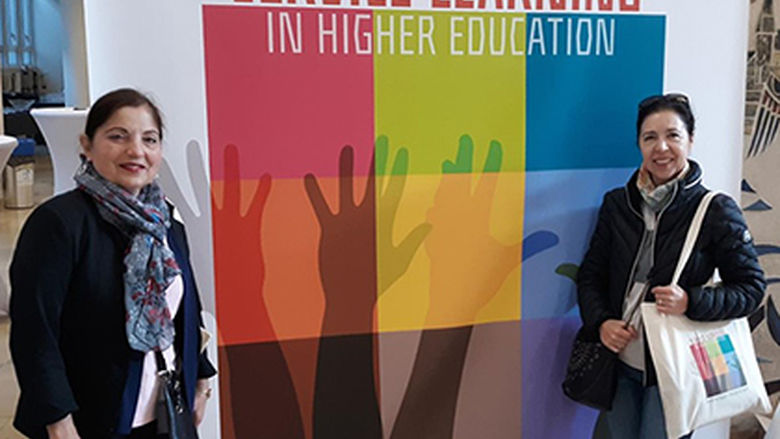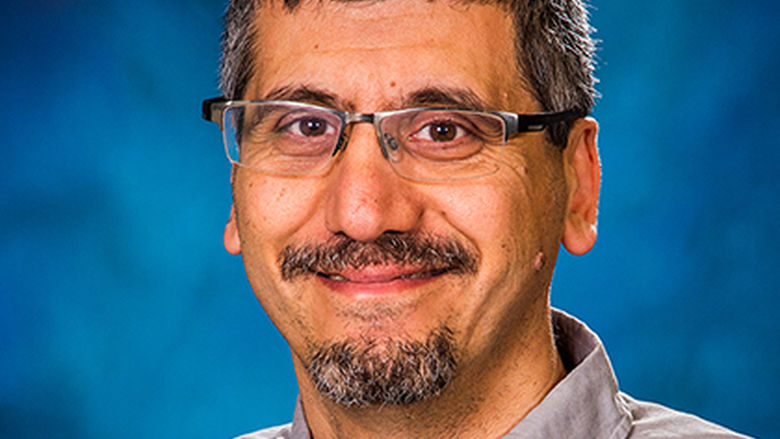WYOMISSING, PA — Abdullah Konak has recently been named distinguished professor of information sciences and technology at Penn State Berks. He is the third faculty member at the college to receive the distinction.
“Dr. Konak exemplifies excellence as a scholar," stated Janelle Larson, interim associate dean for Academic Affairs. "His research in systems modeling and optimization has broad application. He is also dedicated to student learning, creating tools for student engagement and incorporating undergraduates in his research. We are fortunate to have him at Penn State Berks."
Candidates for appointment as distinguished professors must be acknowledged leaders in their fields of research or creative activity, as documented by notable contributions to research published in leading journals and/or books and creative accomplishments widely recognized for excellence; prestigious awards and citations; and a substantial record of invited lectures or performances delivered at prestigious institutions. In addition, candidates must have demonstrated significant leadership in raising the standards of the University with respect to teaching, research or creative activity, and service; and have demonstrated excellent teaching skills and contributed significantly to the education of students who subsequently have achieved recognition of excellence in their fields.
Konak’s current research focuses on systems of modeling and optimization using computational techniques, applied in a broad range of areas. He has published 50 scholarly articles in top journals, many with Penn State Berks student researchers, and his work has more than 5,500 citations. He has been invited to speak and lead workshops at institutions and conferences around the world. In addition to research in his field, Konak has conducted pedagogical research to deepen student learning.
His contributions to teaching and learning are many. He regularly includes undergraduate students in his research, and has helped develop and enrich both the Information Sciences and Technology (IST) and Security and Risk Analysis (SRA) degree programs across the University. For example, Konak created the Collaborative Virtual Computer Laboratory (CVCLAB) at Penn State Berks to provide students with active learning experiences that involve collaborative hands-on experimentation. Students can access the CVCLAB’s resources and perform activities that are impossible to complete on campus or on their personal computers. In addition, the CVCLAB is used in youth outreach programs, including summer camps and K-12 cybersecurity activities.
In addition, Konak teaches courses in the college’s entrepreneurship and innovation minor and coaches student teams in the program. Teams he has advised have been successful in competitions, including PennTap, IncU, Nittany Artificial Intelligence Challenge, and the Greater Reading Chamber Alliance Business Plan Competition. He is the co-organizer and an instructor in the Customer Discovery Lab, a six-week series of workshops offered by the college’s Flemming Creativity Entrepreneurship and Economic Development Center, which offers student/community teams commercialization training and mentorship, as well as the opportunity to apply for micro-grants. He also offers workshops in creativity and innovation to under-represented students in the Reading School District.
Konak joined Penn State Berks in 2003 as assistant professor of information sciences and technology. He has been a visiting professor at the Chinese University of Hong Kong, Cornell University and Lehigh University. In addition, he has been awarded several grants from federal agencies including the National Security Agency and the National Science Foundation, among others.
He is a member of the Institute for Operations Research and the Management Sciences and the Institute of Electrical and Electronics Engineers. Konak earned his doctorate in industrial engineering from the University of Pittsburgh, his master's degree in industrial engineering from Bradley University, and his bachelor's degree from Yildiz Technical University in Turkey.






